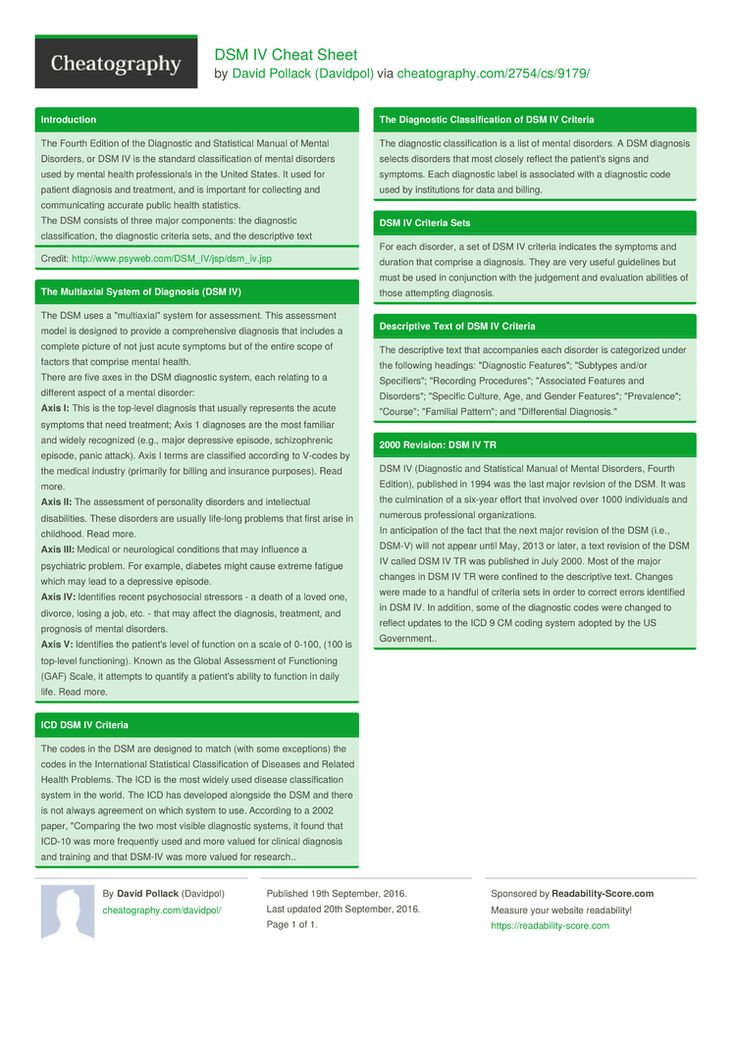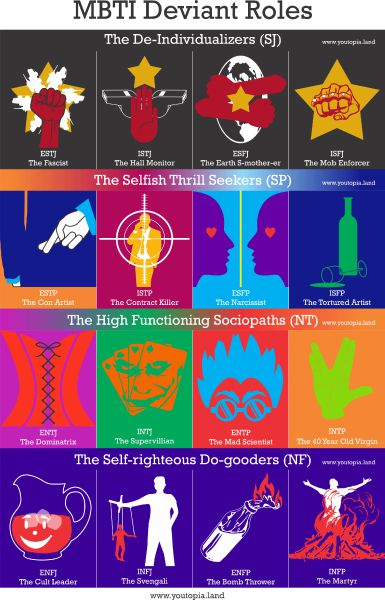How to overcome introvert nature
7 steps to overcome introvert challenges
Firstly, let me say I hate the term life hack, but it’s what so many people use. I much prefer to think of how to overcome some of life’s introvert challenges, in 7 steps. Many introverts worry about spending time among others, believe they can’t do a range of activities and as a result put a ceiling on their personal growth. It doesn’t have to be like that.
Before diving into the 7 steps (or life hacks if you insist), let’s do some background.
What is introversion?
Maybe you feel challenged when confronted by strong outgoing (perhaps even egotistical) people, or social settings make you feel shy? Whilst many introverts may struggle with those two points, they don’t make you introverted:
Aside from going through a long personality test, here’s my two question definition
- Energy: Introverts tend to feel de-energised when spending time with others and “recharge” their batteries by spending quiet time.
This people energy store may be more of an issues deplete for some than others. There’s a scientific explanation of his about chemical sensitivity, it’s real not imagined!
- Processing: Introverts tend to think to talk, where extrovert will talk to think. In other words some people talk a lot more, as part of their thinking, where introverts tend to think things through first (internal processing)
What’s good about being introverted
There are many things which (stereotypically) introverts are good at, that doesn’t mean you are – but these are strengths that many people overlook.
- Detail: Most introverts are better at detail, perhaps as they concentrate on the task not the talking. The downside of this is where they believe that the way know for doing a good job is for doing an excellent job and never talking about it
- Listening: Introverts tend to be very good listeners.
- Summarising: Because they listen well they summarise well.
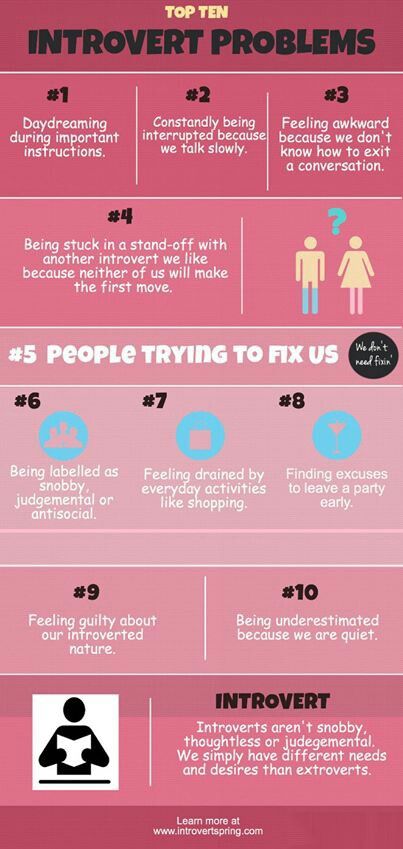 This makes you invaluable in meetings as you can keep things on track and help others to see the good in both sides of the arguments.
This makes you invaluable in meetings as you can keep things on track and help others to see the good in both sides of the arguments.
Read the introvert superpowers
5 steps to overcome introvert challenges
- STOP – Stop worrying about it. You’re an introvert, not a weirdo. A third to a half of the population are the same and when people stop worrying about it (which only makes things worse), they start to feel better. Develop a better relationship with yourself and change some of that self-talk.
- S – Strengths, focus on your strengths. I listed some of the common strengths above, what are yours? In addition, find out more about introversion, it will help you realise you’re not odd and you are quietly powerful
- T – Time, give yourself the gift of time. Accept that meeting with (lots of) others will make you tired (virtually or face to face). Plan some recovery time for after the event, where possible, or take mini-breaks during the event.

- O- Orient, orient yourself and those close to you around what you need and what they need. In other words, talk about being introverted and get the discussion to what you need as individuals
- P- Position. For those times when you have to act in a group. That might be networking events, parties, work socials, large meetings, conferences etc. Get yourself a position where you’re helping others. Many introverts reports this really helps. Ask the organiser, she’s bound to accept help. Welcoming guests, making others feel at ease, doing a survey, keeping the room clear, the list’s endless. Most introverts find having a role like this allows them to much more easily get in, and out of, conversations. For those conversations that run easily, keep them going, but for the others you have an excuse to escape.
2 extra steps to overcome introvert challenges
- Role models. As 33-%-50% of the population are introverts, you should be able to find some people to look up to.
 The introvert list includes well known leaders like Richard Branson and Bill Gates, so don’t assume anything. You get to choose, how can you model yourself on your role model? What 1-2 things might you change (or choose NOT to change)?
The introvert list includes well known leaders like Richard Branson and Bill Gates, so don’t assume anything. You get to choose, how can you model yourself on your role model? What 1-2 things might you change (or choose NOT to change)? - Find some extrovert friends: Who do you already know and get on with, that could be your “wing man”. Who is also going to the same conference, networking event or party? Somebody who does lots of the talking and you are comfortable around?
Are You An Introvert? 8 Ways To Make Introversion Your Superpower
Are you an introvert? Let’s dive into the definition of an introvert and how to leverage your introverted personality.
What is an introvert: Introverts tend to be more quiet and reserved. They seek solitude and prefer introspection to socializing.
However, introversion is a spectrum. All of our personality traits fall on a spectrum. Where do you think you fall?
But what does each label mean? Let’s review the difference between an introvert, extrovert and ambivert:
- Introvert: Someone who gets energy from solo time and focuses more on internal feelings rather than on external sources of stimulation.
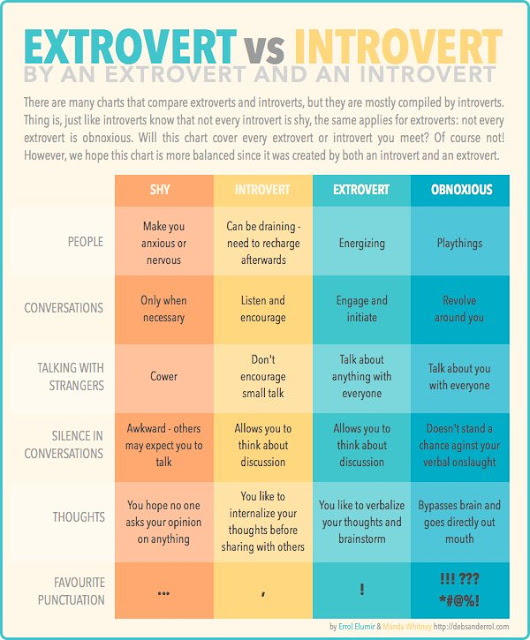
- Ambivert: Someone who can exhibit qualities of both introversion and extroversion depending on the situation, mood and people they are with.
- Extrovert: Someone who loves being around people, gets energy from socializing and feels confident with new people.
If you aren’t sure, you could try looking in the mirror. We can tell a lot about someone’s personality from their face. This fascinating study did a drawing of two typical faces:
Most people don’t realize that much of our personality is genetic — in other words, personality is not a choice. You can’t just decide to be more extroverted one day.
This is a headache for many introverts.
Parents send them to camp and say: “Just be more friendly.”
Networking experts say, “Build your network and meet as many people as possible.”
Asking an introvert to be more outgoing is like asking them, “Please don’t be yourself.”
No more.
It’s time to use your introversion to your advantage instead of trying to change it.
Are You
Really an Introvert?Not sure if the introvert label really fits you? Have you ever felt like an outgoing introvert? Or a social introvert? You might be an ambivert. Take our free quiz to verify:
Take the Quiz
Ok, did our quiz find you are definitely an introvert? Great! Read on for how to harness your power:
↑ Table of Contents ↑
Your Incredible World View
Introverts have a different way of perceiving the world — and this is a huge advantage. The best example is in the classic ‘lemon juice experiment.’
“Introverts were found to salivate more than extroverts when a drop of lemon juice was placed on their tongue. The researchers theorized that introverts get triggered easily by their surroundings because they naturally possess higher level of arousal, which is why they prefer less intensive activities such as reading and writing rather than partying. Their preoccupation with their own thoughts is also what separates them from the crowd. Such “inward-orientedness” makes introverts unique souls with much to offer for the world which others often unwittingly overlook.” – Michael Poh
Their preoccupation with their own thoughts is also what separates them from the crowd. Such “inward-orientedness” makes introverts unique souls with much to offer for the world which others often unwittingly overlook.” – Michael Poh
↑ Table of Contents ↑
An Introverted Superpower
Studies have found that introverts are more humble than extroverts. Humility is an incredibly important — and hard to learn trait. It makes introverts more perceptive, more open and less bogged down by ego.
Humility is also associated with the desire to be of service to others.
This makes introverts wonderful leaders, managers and friends.
↑ Table of Contents ↑
Why Introverts Make Amazing Leaders
When you ask someone to think of a highly charismatic person, they will often conjure up an image of a booming extrovert. But charisma comes in many flavors. In fact, introverted traits are very well suited to successful leadership roles. Here’s why:
- Introverts are wonderful observers.
 You pick up on social nuances, hidden emotions and team dynamics better than anyone. Don’t take this superpower for granted!
You pick up on social nuances, hidden emotions and team dynamics better than anyone. Don’t take this superpower for granted! - When you speak, people listen. Since you tend to think carefully before speaking and use your words carefully, people take you seriously. Don’t ever feel pressured to engage in inane chit chat or make throw away comments to appease others. Speak when you are ready.
- Your quiet power is contagious.
↑ Table of Contents ↑
Optimize Your Introversion
Don’t let anyone ever tell you to change your introversion–it’s SUCH an advantage. However, it is important for introverts to optimize their introversion for strength.
- Know exactly how you recharge. Have a big event coming up? Need a refresh? What do you do? Get your pre and post social routine down so you are in control.
- Find the perfect wingman. Who can be a great social partner for you? Will a friendly extrovert help you break into a crowd or overpower every conversation? Will a fellow introvert be a good partner in crime but discourage meeting new people? Can you find an ambivert to balance you out? Find your best event and socializing partner.

- Level up your body language…
↑ Table of Contents ↑
Body Language for Introverts
You might not realize it, but even when you are not speaking, your body is saying something. Introverts need to be especially adept at nonverbal communication — both reading cues and sending cues. Here is a quick overview of some body language tips for introverts:
↑ Table of Contents ↑
Tips for Introverts at Work
Have you noticed that many companies are switching to large open workspaces? This can be very hard for introverts. I interviewed my introverted colleague Shelly O’Donovan to get some great tips for introverts:
In a 2015 study by Oseland, it was confirmed that people who scored highly for introversion and neuroticism were more affected by noise than people who scored low on either variable. In this study, when all participants were asked specifically how noise affects the ability to work, a significant three-quarters of the respondents reported that they are negatively affected by noise in their workplace.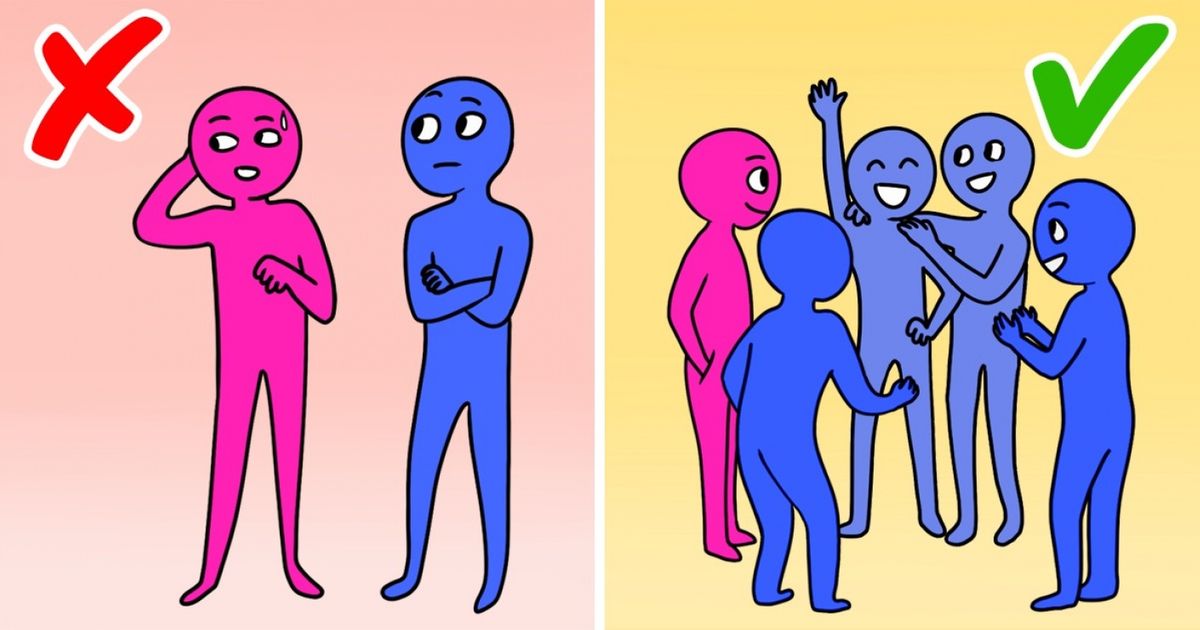 Only 10% of participants thought that acoustics in their workplace had a positive effect on their performance. In addition, there are many studies that show that your choice in working environment is required to suit different activities and personalities. What can you do?
Only 10% of participants thought that acoustics in their workplace had a positive effect on their performance. In addition, there are many studies that show that your choice in working environment is required to suit different activities and personalities. What can you do?
- Aim for flexibility. If you are a leader in this environment, consider some freedom for your employees. Not everyone thrives in an open environment. Some will get distracted; some will be distractors, while others will flourish. Knowing who needs what is key. As an employee, approach your manager, and in a positive manner ask for some flexibility and explain why you need it. Introverts tend to be thinkers; they often need quiet spaces to contemplate and to crank out work. While extroverts think out loud, they often talk through something before they pen it. This means that introverts could struggle in an open environment if they are not given that flexibility. Flexibility could mean work from home days each week, privacy pods to take calls from or to think through projects, or the ability to use the resources available in the community.
 One open space organization is championing flexility by allowing its workers to go to the library next door when they need to research a project–not because the library has resources–but because it is quiet.
One open space organization is championing flexility by allowing its workers to go to the library next door when they need to research a project–not because the library has resources–but because it is quiet. - Take care of yourself. Introverts require some quiet time to recharge while extroverts require socialization to recharge. As an introvert, you need that time. For someone who is in that open environment all day, coming home to a busy house or a second job at night can be overwhelming. Build in quiet time for yourself. This could mean spending two hours in open space and then hiding away for 10 minutes in a quiet corner of the cafeteria while you recharge your battery. It could mean that you turn off the radio on your drive home and have some quiet car time or sit in your car at lunch for a break. Take care of yourself and give yourself that time to decompress.
- Ask to have quiet times. Noise can cause distraction at work. Set aside a few key slots during your day to find a quiet place to work.
 If you can disappear into a pod for an hour or two you can accomplish amazing amounts of work because you have the peace and quiet to focus on it.
If you can disappear into a pod for an hour or two you can accomplish amazing amounts of work because you have the peace and quiet to focus on it. - Shift your hours. Could you shift your hours an hour or so in either direction? It may not be possible, although if you can, you may be able to get into the office early and start working before it is full. This will give you that quiet time you need to properly focus.
- Don’t eat at your desk. You need a break from that open environment and lunch is the perfect time. Lunch with a friend outside the office can help you recharge, or go for a walk or a ride in your car. Just sit in a quiet place and recharge! Thriving in any environment means taking care of yourself. It is important to know your personality and what you need to make it work. Give yourself permission to figure that out.
Are you managing introverts or many different personality types? Learn how to be a good manager based on personality!
↑ Table of Contents ↑
How Introverts Can Be Heard in Meetings
Do you dread meetings? Introverts sometimes dread the open cattle call of meetings — having to brainstorm out loud, being randomly called on or being forced into icebreakers (even if they are non-awkward).
A classic introvert preference is an aversion to meetings. It may seem justified by the fact that the introvert skill set – one-on-one interaction, confidence to work alone, research and contemplation skills – does not lend itself to a conference room scenario. However, a truly professional introvert will learn to capitalize on those skills not just in their natural habitat, but in apparently unsuitable contexts such as the business meeting. Here’s the problem:
Not knowing how to excel in the meeting process is holding back your career.
I asked my introverted friend G. John Cole to give me some tips for introverts in meetings. Here’s what he said:
- Form opinions in advance. As an introvert, you should aim to get your best thinking done before you even enter the room. Get hold of the agenda early, research the topics and the stats, and prepare some thoughts and ideas. You’ll find it much easier to cut in ahead of your outgoing colleagues if you have the confidence to state your take, and the material to back it up.

- Be first to the meeting room. Build your confidence by getting used to the sound of your voice before you get started. Go over your ideas with a friend or partner so you get to hear them out loud. And show up early for the meeting so that you can build trust with your colleagues face-to-face as they arrive, instead of dreading that moment in the meeting when everyone notices you for the first time.
- Engage at your own pace. You can build confidence and have a meaningful impact upon the outcome of a meeting by speaking up early. If you get a chance to introduce the meeting or present some research while the mood is still being set, you can create a framework within which your colleagues can develop your ideas. Speak up early – but don’t allow yourself to be rushed. Your mind operates how it operates, and if you’re pressed for a quick response from a colleague who is interested in – or critical of – your idea, responding before you’re ready may end up in disaster.

- Ask for more time if needed. If you are rushed to give your opinion, calmly state that you need a moment to think, that you’ll get back to them shortly, or that you need to look into the matter after the meeting.
- Follow up afterwards. Your meeting game doesn’t end with the scraping of chairs and the rush for the coffee machine. You’re an introvert, right? There’s important work to be done from the security of your desk. You can capitalize on that summing-up technique from the end of the meeting by sending out minutes and follow-up emails where appropriate. Don’t make a habit of saving your ideas until the meeting’s over, but if a bit of post-meeting research opens up a fresh angle on your take then by all means share it. It may take you a while to digest new information from the meeting, so if a colleague made a point that you found interesting consider meeting up with them one-on-one to develop the thought further.
Want to get to know your fellow colleagues? Read up on Ambiverts and Extroverts.
Remember: There is no right or wrong personality type. The only right thing to do is to leverage your natural strengths. Your introversion is a gift, never forget it!
How to use your introversion to move up the career ladder
We all know what to do to move up the career ladder: improve your skills, do quality work and on time, be reliable and responsible, work in a team.
I've had this approach for a long time, and it worked well as I started my career at IBM, continued my career at Apple, and then plunged into the wild and unexplored world of tech startups. As an introvert, I took an executive position at eBay, became a CEO at Yahoo, and eventually founded a startup.
Someday I realized that I needed to stop pretending to be an extrovert and use my introversion to enjoy my work and move forward. In this article, I will tell you how you can use introverted qualities to achieve high results.
The problem with the career ladder
There are many differences between introverts and extroverts, and some of them show up in how they move up the corporate ladder. Early in their careers, introverted designers, introverted programmers, and introverted researchers are just as fast at promotion as their extrovert counterparts.
Early in their careers, introverted designers, introverted programmers, and introverted researchers are just as fast at promotion as their extrovert counterparts.
However, some companies have a clear career path with opportunities to move up to senior positions for frontline employees, while others do not. The management ladder is more common and may be the only option available to you.
Photo: Unsplash
I remember how we at the company discussed the work of our key employees and decided what tasks they would be responsible for next year. The most common and obvious option is to promote them to the position of manager. This is where stereotypes and expectations appeared that a good leader should be an extrovert. The main argument of the company's management: “What are we going to do with them? I don't see how they can manage the team."
“65% of CEOs rated introversion as a barrier to leadership,” Harvard Business Review, The Hidden Benefits of Quiet Bosses.

Employees are aware of this prejudice. Most likely, many have even heard from the boss that in order to get a promotion, they need to change their behavior. At this stage, many gave up: “Well, apparently, leadership is not for me,” they thought. This is very sad, as many of the hidden strengths of introverts will help them become a great leader in the future.
By "changing behavior" managers often mean that they need to respond appropriately to difficult situations, be more confident, make tough decisions in a short amount of time, and interact with the team.
Well, first, let's understand what introversion is.
Accept yourself
For most of my career, I believed that I needed to act like an extrovert. I observed the success of my "open and sociable" colleagues and believed that in order to achieve the same results, I must change my behavior.
That's exactly what I did. I took part in social networking events, learned how to speak in front of an audience, and turned a blind eye to the discomfort I felt. Many of my colleagues still do not believe that I am an introvert.
I took part in social networking events, learned how to speak in front of an audience, and turned a blind eye to the discomfort I felt. Many of my colleagues still do not believe that I am an introvert.
Did it work? Yes, it was like that for a while. I was promoted to a managerial position and started climbing the corporate ladder. Did it last long? No. You can suppress your introversion for a few years. However, you will constantly feel discomfort and stress.
Photo: Unsplash
I believed that my real qualities were flaws and weaknesses that needed to be fought. What mistake! Some hidden traits of introverts, on the contrary, help them achieve high results in their work. They need to be developed, not suppressed. For example:
- Introverted leaders perform better than extroverted leaders when they have more active people on their team.
- Introverts can inspire employees and listen to them.

- Introverts can develop deep relationships with colleagues and form alliances.
- Introverts think about problems, do deep research, and eventually find the right solution.
Many personal qualities of introverts can become powerful leadership tools. Introverted behavior patterns can help you redefine leadership so you can become a better leader.
A new type of leader
Today, when many employees are dissatisfied with their work and most often leave it because of a bad boss, it becomes obvious that the standard extrovert model does not always work in leadership.
Here are seven examples of how introversion can be used as a powerful leadership tool.
1. Empathy versus Detachment
The old style of management no longer works well in modern companies. Leaders who adhere to this type require loyalty, respect and hard work from their employees and value hard skills - that is, skills related to the technical side of the activity. Millennials, or the workforce of the future, have shown that they are not going to tolerate this. Of course, basic “hard” skills are necessary in every profession, but it is also important to have “soft” skills: they are not related to a specific type of activity, but to communications for effective interaction with colleagues, clients and partners.
Millennials, or the workforce of the future, have shown that they are not going to tolerate this. Of course, basic “hard” skills are necessary in every profession, but it is also important to have “soft” skills: they are not related to a specific type of activity, but to communications for effective interaction with colleagues, clients and partners.
Empathy is considered a powerful and valuable skill that leaders can use to lead teams more effectively. Many employers look for this quality in job candidates. Fortunately, the ability to listen, understand and empathize is a typical trait of introverts.
Photo: Unsplash
Early in my career, I actually tried to suppress any expression of empathy. Objectivity, professionalism and emotional detachment were needed in order to keep the distance between leaders and employees. My ability to connect with employees and build deep relationships with them was often ridiculed by management: “They follow him from company to company because they like him. ” Oh no, how terrible!
” Oh no, how terrible!
I also tried to be more aggressive and develop my debating skills so I could "swim with the sharks" in the boardroom. At the time, I was working with a career coach. We discussed various approaches to this problem. Did I really want to suppress my nature in order to be like them?
Thanks to a coach, I realized that empathy is actually a powerful quality that has helped me build a strong company with a healthy culture. Aggression was not the right approach to leadership development.
Today's corporate climate is finally recognizing the need for introverted leaders who can show empathy.
2. Mentoring versus commanding
You have most likely come across leaders who rely heavily on their position and authority to get things done. Such authoritarian leaders rely on a formal structure and strict policies to control and dictate the team's goals, decisions, and activities. It is difficult for introverts to work with such leaders. They want to be taught and instructed.
They want to be taught and instructed.
Photo: Wookieepedia
Daniel Goleman in his book "Emotional Leadership" says that "leadership-mentoring" is a more harmonious management style for introverts:
“An effective leader-mentor listens in private, builds personal relationships and trust, helps employees understand that their work is important, and explains where they can find additional information and resources… This type of leadership not only frees managers from having to do work for others but promotes innovation and learning at all levels of the organization.”
Goleman also identifies three management styles that contribute to team performance: visionary, positive, and democratic.
The ability to develop and find talent in employees is highly valued by companies. The Brandon Hall Group recently conducted a survey of executives from various companies. It turned out that “all participants cited “mentoring leadership” as an important strategy for increasing team productivity and effectiveness. About ⅔ of respondents (65%) admitted that training managers in such skills is their most difficult task.
It turned out that “all participants cited “mentoring leadership” as an important strategy for increasing team productivity and effectiveness. About ⅔ of respondents (65%) admitted that training managers in such skills is their most difficult task.
Introverts actually have many of the skills needed to be a good mentor.
I realized that I enjoy developing the careers of others and building mentoring relationships that go beyond the company. I was a coach-mentor, and this helped me not only develop the talent of my employees, but also build strong relationships with talented people that lasted for decades.
3. Strategic vision versus action
A true leader must have the ability to create and communicate a strategic vision. We have all seen companies fail when they fail to motivate their employees with a compelling and inspiring vision. Introverts can find ways to create this vision.
Of course, it is important not only to have this vision, but also to put it into practice. This is one of the most difficult tasks for introvert managers.
This is one of the most difficult tasks for introvert managers.
For example, it was very difficult for me to constantly take part in operational meetings. This is how I imagined hell: stuck in a small room, listening to other people's conversations, chatting with colleagues during breaks, participating in arguments and discussions.
I spent hours looking out the window at the trees, dreaming of getting out of the room and taking a walk. I needed a break, some time to recharge, if only for a few minutes.
Photo: Unsplash
I encourage you to be clear about your role and spend more time creating a strategic vision for your product. However, you still need to fulfill your job responsibilities. How?
Trust and delegate. Hire smart people and send them to these meetings. You must abandon the traditional "command and control" management style.
“Employees today are not interested in leaders who adhere to the “command and control” style.
They won't work because I said so. They will work because they want to.” – Irene Rosenfeld
Good leaders have a wide range of responsibilities for the company. However, they cannot handle everything on their own. Invest in your introverted strengths to inspire and motivate people. Delegate things to the smart people you've hired and motivated.
4. Innovation vs. Brainstorming
If you want to move up the corporate ladder, you must demonstrate the ability to come up with new ideas to improve a product or service, organizational structure, or workflow. To do this, you must spend some time thinking and looking for new solutions. It is often very difficult to come up with new brilliant ideas in a group.
In my 23-year career, I've never seen a brainstorming session come up with a single brilliant idea. Still, companies will continue to believe in the myth that teamwork and open offices are the key to innovation. Unfortunately, this culture prevents introverts from coming up with innovative and creative ideas.
Unfortunately, this culture prevents introverts from coming up with innovative and creative ideas.
Photo: Unsplash
At one of my companies, we take a different approach: we tell employees about the problem, leave them alone, and let them do whatever they want. This is heaven for introverts.
“It has been scientifically proven that brainstorming is a bad way to come up with ideas. If you have talented people working in a team, they must work alone.” – Dr. Adam Furnam
I am not saying that group meetings are ineffective. I think they help you get into the details of idea evaluation and execution planning. However, brilliant and breakthrough ideas are not born in group sessions.
5. Deep Thinking vs Instant Decisions
A 2012 study published in the Journal of Neuroscience points to physical differences between the brains of introverts and extroverts. In particular, introverted brains show thicker areas of the prefrontal cortex associated with abstract thinking and decision making. This partly explains why introverts tend to think things through, while extroverts live in the moment.
In particular, introverted brains show thicker areas of the prefrontal cortex associated with abstract thinking and decision making. This partly explains why introverts tend to think things through, while extroverts live in the moment.
Introverts need more time to come to their own conclusions. They should think about the problem well, do a little research, evaluate the options. It is difficult for them to make a decision right here and right now. Unfortunately, this is exactly what many companies require of them. The need to make decisions quickly will arise in telephone conversations and meetings.
I still don't like this type of pressure, so I refused to make decisions without thinking them through. If you find yourself in the same situation, state firmly that you need more time to think.
I know this goes against the culture of Silicon Valley companies that prefer to "go fast and break everything in their path." However, at some point, you begin to understand that you need to think about yourself and work in a way that makes you comfortable. If your boss refuses to accept this, it might be time to change jobs.
If your boss refuses to accept this, it might be time to change jobs.
6. Mentoring versus management
As I mentioned earlier, I like to have tête-à-tête meetings with team members. So I can give them advice and guide them in their careers. I know that relationships with talented people go beyond the company. I have maintained friendships with some colleagues for over 20 years.
Photo: Unsplash
I have always been against managing people as "resources". I do not agree with the approach that the work must be done by a certain moment, and the team is a resource in order to make it all possible. Many managers are very tactful and rarely give long-term guidance to their employees.
Some companies I've worked for in the past argue that a manager must have mentoring and training skills. But let's be honest, how many of our bosses have been great mentors?
The ability to teach and mentor will help you excel in leadership positions. As an introvert, you will try to avoid group discussions, but deep one-to-one conversations will seem natural and comfortable to you.
As an introvert, you will try to avoid group discussions, but deep one-to-one conversations will seem natural and comfortable to you.
Play to your strengths and sides, rather than acting like you're running some kind of amorphous team, and that's good for your career.
7. Public speaking versus casual conversation
What do extroverts and introverts have in common? They are afraid of public speaking. However, a huge number of well-known introverts were excellent speakers (for example, Barack Obama).
I often talk about the importance of public speaking for my career, but I understand how difficult it is to overcome this fear. This takes a lot of work and practice. Mastering this skill will have a huge impact on your career progression.
Some of your introverted qualities can actually help you become a good speaker. Introverts can quietly spend a lot of time researching, preparing and practicing in order to master the desired skill by a certain point. They also focus their presentation on the key message and not on themselves.
They also focus their presentation on the key message and not on themselves.
Photo: Unsplash
Like many others, I myself have long been afraid of speaking in front of an audience. However, one day I realized that in fact it was the fear of two completely different and at the same time related problems.
First, I was afraid of failure. Nobody wants to make a fool of themselves in front of a huge group of people. However, the fear of failure can be easily overcome with practice and preparation, which is quite within the power of an introvert.
The second problem was my fear of networking and casual conversations. I have always associated public speaking with group discussions. After I took part in such activities, I realized that they had nothing to do with what made me uncomfortable.
I focused on a carefully crafted message and information that I wanted to share with the audience. It helped me overcome my fear and enjoy the process. It is much easier to tell something to the audience, rather than trying to take part in a group discussion with other people.
It helped me overcome my fear and enjoy the process. It is much easier to tell something to the audience, rather than trying to take part in a group discussion with other people.
Embrace your introversion
Don't pretend to be someone else. This will not help you achieve high results in your career. Fortunately, modern companies are starting to recognize the fact that successful teams are made up of different people, and introverts can be the great leaders that employees need.
Think about how you can use your latent introvert qualities in your career. Are there companies that see the unique value you can bring to their organization?
Ultimately, we all want to spend our time and energy doing things we enjoy. Take full control of your career ladder and you can shape your future and use the power of introversion to make it happen.
Source.
Related Content:
Here's What Can Happen When You Stop Asking for Permission
13 Strategies to Beat Procrastination
By 2020, These Skills Will Be in Marketplace
How to Learn Everything You Can Learn in One Week at work for half a year
Introverts in IT.
 How to use your character traits to achieve your goals / Sudo Null IT News
How to use your character traits to achieve your goals / Sudo Null IT News Several years ago I worked as a screenwriter for training courses. One morning, the boss greeted me with a “we need to talk” face.
He asked me to speak with a visiting psychologist. Thank you for not being a psychiatrist, I thought. It turned out that he hired a psychologist who "helps to overcome the barriers of communication in the team." To avert their eyes, the psychologist talked to all the employees, although they saw only me as a problem.
I declined this tempting offer and happily forgot about it. But the next week I met with this psychologist again. At first she sat on the couch and looked at the catalogs. And then she sat nearby with a look of "I'm here if you need help." After a while, I got tired of it and I said that I think about it.
Imagine this scene? Yes, exactly like in films about not quite normal people.
After I was asked to leave, one of my former colleagues told me that people weren't really afraid of me, but they didn't know what was on my mind. I did not discuss anything with anyone except work, communication with colleagues most often came down to “good morning” and “bye”, if there were no work reasons.
I did not discuss anything with anyone except work, communication with colleagues most often came down to “good morning” and “bye”, if there were no work reasons.
And this at a time when the boss was doing his best to create a “atmosphere of ease”: everyone (except me) was photographed for forced positive posts on the corporate blog, went to nature (without me) and discussed films. At these discussions, I felt like I was in a literature lesson with an analysis of Tyutchev's poem.
I didn't need all this, it was interesting for me to work, not to communicate. And, by the way, in addition to my work, I did a lot of things to optimize processes and the like - it was a startup, so a lot had to be done from scratch, and that attracted me to it. So while everyone was discussing the next movie they had just watched in the office, I was working.
But even initiative did not save me from being fired.
I think today, I can understand the boss. I put myself in his place: “this dude is kind of strange. He seems to do everything he is asked to do and more. He is not lazy, although he comes later than everyone else. Rather, on the contrary, he works suspiciously hard. And he is silent all the time ... He does not participate in the life of the team. Heck, he didn't even take a picture for the blog! Is he hiding something?
He seems to do everything he is asked to do and more. He is not lazy, although he comes later than everyone else. Rather, on the contrary, he works suspiciously hard. And he is silent all the time ... He does not participate in the life of the team. Heck, he didn't even take a picture for the blog! Is he hiding something?
I didn't know how to behave at the time. Today, after loving negotiation and reading a stack of books on introversion, including the one discussed here, I know what to do and what to say.” - this is where the story ends.
Disclaimer I: To prevent unconstructive disputes - I understand that there are few "pure" extroverts and introverts, but they exist, and the precedent is a good reason for investigation. In addition, it is not necessary to be a pure introvert in order to feel all the delights of the world that does not shut up for a second.
First, let's look at what introverts are not. Of course, the theses do not claim to be scientific, and may provoke accusations of populism, but nonetheless.
7 myths about introverts:
#1 Introverts don't like to talk It is not true. Introverts don't like to talk. They will remain silent until they have something to say. Empty talk exhausts them. But try to talk to an introvert about what he is interested in, and it will be difficult for you to stop him.
#2 Introverts are shy
Shyness is not related to introversion. Introverts are not afraid of people, but they need a good reason to interact. They are unlikely to keep in touch with someone just out of courtesy or for reasons of mutually beneficial "friendship".
#3 Introverts are rude and dislike people
No, they do not see the point in social conventions and the exchange of false pleasantries. They want everything to be fair. Unfortunately, the world doesn't work that way. Behaving insincerely is a big stress for them, which they prefer to avoid.
#4 Introverts don't like being in public
This is not true. Introverts do not like to be in public for a long time. They need less time to collect information and impressions, and much more time to process them. And if you think that sounds too utilitarian, then, yes, it is - they hate aimless pastime, on the scale of one day, or a lifetime.
Introverts do not like to be in public for a long time. They need less time to collect information and impressions, and much more time to process them. And if you think that sounds too utilitarian, then, yes, it is - they hate aimless pastime, on the scale of one day, or a lifetime.
№5 Introverts are strange
Most often they are individualists. They are little subject to the herd mentality, focusing on their inner convictions. They think independently, therefore, their judgments are often at odds with the public. From the outside, this behavior may seem eccentric, extravagant, or even outrageous. But shocking contradicts the very definition of introversion, so shocking introverts do not exist. Except maybe Marilyn Manson.
№6 Introverts closed bores
They may seem self-absorbed, but that doesn't mean they don't notice what's going on around them. Quite the contrary - all the same sensitive sensors work without ceasing. Another thing is that not everything that happens around them is worthy of their attention.
#7 Introverts can stop bullshitting and act normal
No. Demanding socialization from them is like forcing a turtle to do without its shell.
Science, bitch
Disclaimer II: I understand that life is not basically binary, but much more diverse. No, I'm not suggesting dividing the world in two. No, I am not saying that "there are two types of people in the world."
Well, let's move on to the verifiable categories.
In cognitive neurosciences, the term "temperament" does not have a universal interpretation. It is often described as "a characteristic way of responding to external stimuli". These responses are stable, unchanging, and may occur shortly after birth, suggesting that they are genetically determined.
At the same time, the personality, the value is not constant and is subject to the influence of parental upbringing, environment and cultural factors. Temperament directly affects the personality, since temperament is genetically determined.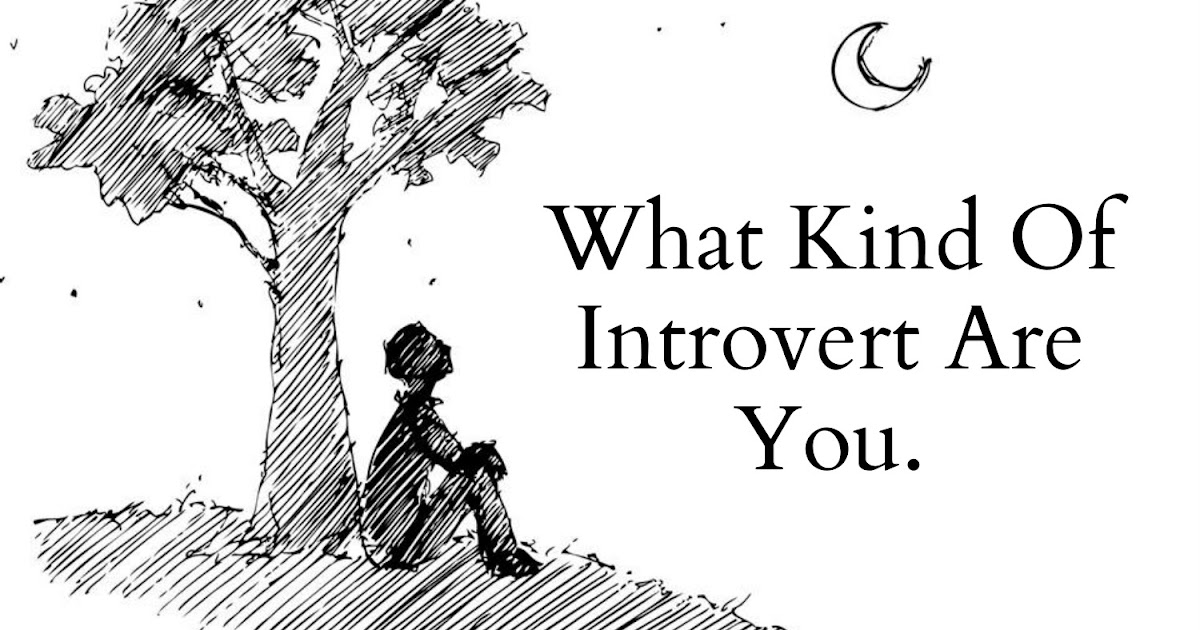
Of course, these definitions and theories are disputed to this day, but the first to approach the issue empirically was Professor Jerome Kagan, a pioneer in the field of developmental psychology. Before his research, all theories were based only on opinions.
We won't bore you with the description of the experiments, the curious can look here.
In experiments involving five hundred four-month-old infants, Kagan's group identified two types of behavior - low-reactive behavior, in which the infants reacted poorly to stimuli, and high-reactivity, in which the reaction was clear and prolonged.
Based on the name, one would assume that the extroverts in the future will be babies who burst into tears at the sight of a woman in a gas mask. But everything turns out to be exactly the opposite - research is still ongoing, and their results give reason to assert that it is from highly reactive babies that introverted personalities grow.
Simultaneously with the observations, measurements of physiological parameters were carried out, the results of which gave reason to believe that highly reactive infants, that is, future introverted personalities, have a more sensitive amygdala.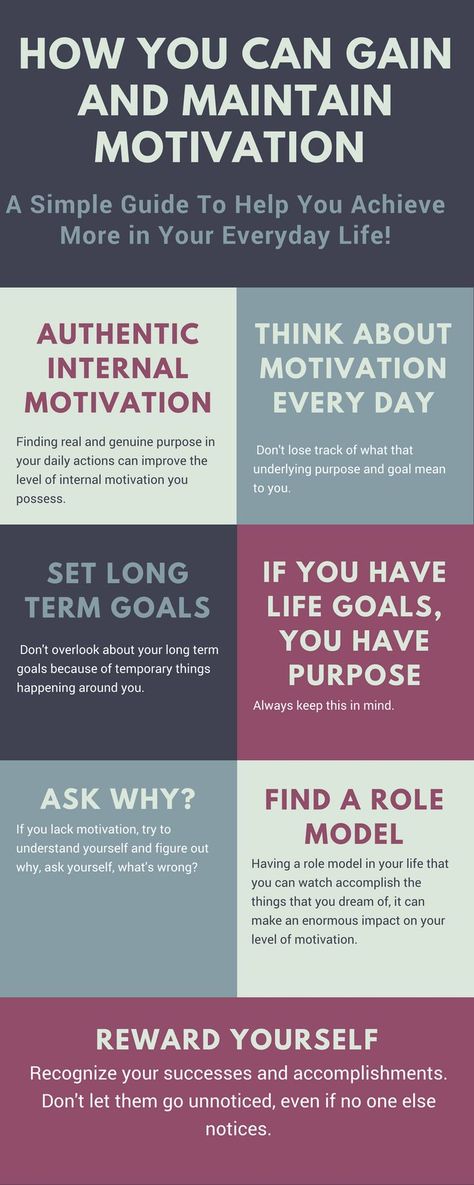
Thus, people who are prone to introversion receive much more signals, for the processing of which they need more attention, time and energy than extroverts. This is why introverts spend more time thinking than talking. And, unfortunately, to action.
Noise level
In 2001, the Belgrade Public Health Institute conducted a study. 123 students (43 men and 80 women) were asked to perform arithmetic operations in their heads, in quiet and noisy laboratory conditions. The predisposition of the experimental subjects to one or another type of temperament was determined using the Eysenck personality questionnaire.
Subjects rated concentration problems, fatigue levels, and noise-induced irritation on a 10-point scale.
A group of extroverts completed tasks much faster in noisy environments. Introverts, on the other hand, experienced trouble concentrating, fatigued, and irritated under the same conditions.
Correlation analysis revealed a high inverse relationship between extraversion and noise level.
Strategy
Now that we have figured out that introversion is an innate quality that can get in the way of a successful career in the world of extroverts, what can we do about it?
An excerpt from a book about introverts:
“Of course, we allow all the gifted eccentric loners who create companies in garages to express their personality as they please, but this is more of an exception to the rule - our tolerance usually extends to those who who manage to become fabulously rich, or at least those who show hope for this.
Introverts are often perceived as loners and people who "don't want to play in a team", but it's not that simple. If you force an introvert to "play on the team", he will spend more energy on "fitting in" with the team than on "playing". And this is not a whim or a drawback, although from the point of view of the corporate world it is exactly so.
So what's a man to do who hates the empty talk about yesterday's Game of Thrones or the new iPhone?
Unfortunately, the majority rule applies here - if you are in England, you will have to drive on the left side of the road, no matter how independent you may be.
Thus, the only way out is to learn how to work on your "weak" sides and adapt your life cycle to the world of extroverts.
What does this mean in practice?
No matter how much you agree with the concept of polar temperaments, this study shows that introverts can significantly increase their efficiency if they work in a controlled noise environment. For extroverts, the opposite is obviously true. If you are an extrovert, congratulations. Introverts are less fortunate, it is unlikely that someone will create special conditions for them at work. What to do in this case?
Of course, the most obvious solution to a noisy workplace is to work from home. But, firstly, many introverts already know this. And secondly, of course, this is not always possible. Therefore, the only solution would be to create "safety islands".
Our country is still far from the Google offices with their charging pods, but most likely your company has places where you can be alone from time to time, for example, meeting rooms.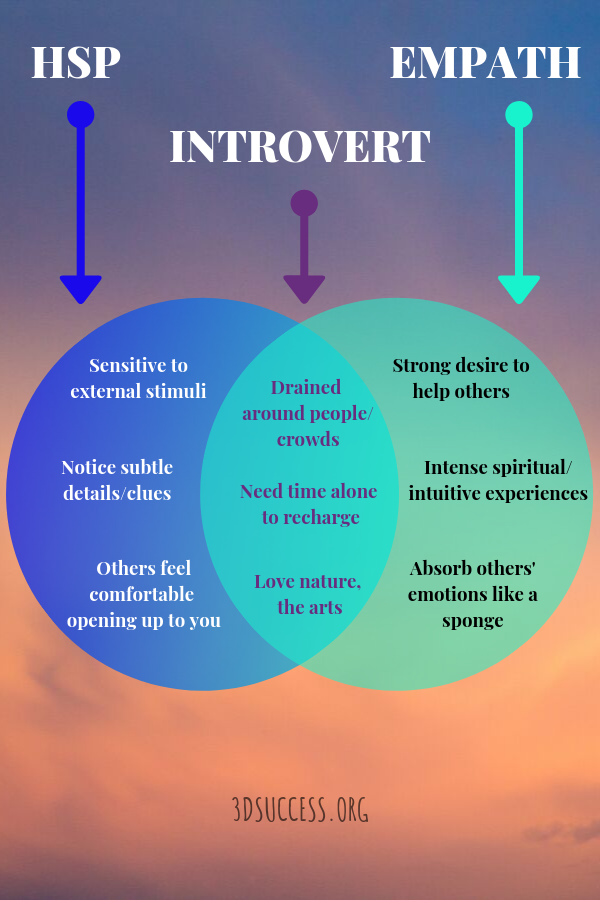 Although, this is still a temporary solution, and if you are not the only introvert in your company, it is probably time to discuss this issue with your superiors. Good bosses are good at counting money, and you will have no problem making arguments in favor of the rationality of organizing vacation spots.
Although, this is still a temporary solution, and if you are not the only introvert in your company, it is probably time to discuss this issue with your superiors. Good bosses are good at counting money, and you will have no problem making arguments in favor of the rationality of organizing vacation spots.
Just don't call them places of rest, most likely, the authorities will not be delighted with this term.
Intronet
Here's what Jason Friedman, founder of 37signals says about why people prefer to work from home:
“This is especially true for people in creative professions — designers, programmers, engineers, thinkers. To get the job done, they just need long periods of time when no one bothers them. You can't ask someone to switch into creative thinking mode for 15 minutes and think about a problem. Yes, an idea can come up quickly, but usually, to really think about a problem, you have to dive into it, and for that, you need time, a lot of time, when no one will disturb you.
Even though a typical working day lasts eight hours, how many people can afford to be alone with their thoughts for eight hours? And seven? And six? Maybe at least five or four?
When was the last time you were left alone for four hours while you were in the office? And for two? Or maybe one? Very, very few people can afford to immerse themselves in a problem for several hours while in the office. And that is why people prefer to work at home, or, if they work in an office, to come early in the morning, while no one is there, or vice versa, to stay late when everyone has left. Or work on the weekends, or on a plane, or in a car, and even on the subway, because no one will bother them there.”
And we are not talking about introverts here. Imagine how imperative this is for them. Indeed, in their case, several more elements are added to the equation - social interactions, the need to play a role, and others.
Guy Kawasaki: “You might find this hard to believe, but I'm an introvert. I have to play a certain “role”, but by nature I am a loner.”
I have to play a certain “role”, but by nature I am a loner.”
Knowing who Guy Kawasaki is, it's really hard to believe. But this is not the only example when a person who has dedicated his life to uniting people and their efforts turns out to be “closed”.
Craig Newmark, creator of Craigslist talks about his communication problems and what helped him overcome them.
In 2002, at Bar-Ilan University, a study was conducted, as a result of which it turned out that, firstly, introverts communicate more freely on the Internet than extroverts. And secondly, introverts are more open in communication via the Internet than in “real life”.
This is probably due to the fact that communication via the Internet eliminates the need for social rituals, as well as the stress associated with assessment.
"Cable to no one"
The first step in solving a problem is to formulate it. You probably don't see this as a problem. Still, because we are talking about temperament, what kind of problem is this?
Still, because we are talking about temperament, what kind of problem is this?
I also thought so, until the story from the beginning of the article happened to me. And then another and another. In the end, it finally dawned on me that there is a problem and the problem is in me.
No matter how well you do your job, if you can't talk about it, preferably just as well.
When I realized that I was more comfortable working from home, that is, in a controlled environment, I hired the best agent I could find. When I watched him "sell" to complete strangers, he seemed like a superman to me.
But after working with him for a while, I realized that he doesn't care what to sell and he doesn't understand anything about what I do. And does not seek to understand. As a result, he made such concessions and accepted such conditions that reduced the value of transactions to almost zero. I didn't know how to explain to him that it wasn't about the prices or the benefits.
So I had three options: try again, find another agent, or learn how to talk to people.
I decided that at the age of 27 it was time to be independent, and I took the first step - I enrolled in negotiation courses. It's hard to imagine places more unsuitable for an introvert than a course on communicating with clients.
It is important to note here that I do not consider Dale Carnegie's achievements to be enviable. Of course, because they directly contradict my introverted nature. And the mention of How to Make Friends and Influence People makes my fists clench involuntarily.
But it turns out that not all negotiation systems are based on lies, compromises and manipulation. On the contrary, there are those who criticize such methods.
Search for like-minded people
Of course, an introvert will not be able to "remake himself" and become a sociable extrovert, no matter how hard he tries. In any case, I do not know of such examples. But he will have to "learn to drive on the right side of the road", and the sooner he accepts this, the better for him and his career.
But he will have to "learn to drive on the right side of the road", and the sooner he accepts this, the better for him and his career.
We've already written about the benefits of stepping out of your comfort zone and enrolling in a negotiation course, a great example of this practice, but it doesn't have to be a course. You can start with small goals.
The internet is the perfect environment for introverts to collaborate, and services like SmartProgress make it easy to find like-minded people.
Do you have a lot of ideas, but are you afraid that you can't do it alone? Create a goal, describe the essence of the project there and turn on the status “looking for a partner”. Write about your achievements, you will be noticed, definitely noticed. It was thanks to SmartProgress that my friend found a business partner. I just wrote about my steps and the future partner saw detailed and thoughtful posts that formed the impression of a pedantic person about him. And everything worked out. He did not present his business to investors, did not look for partners on specialized resources, but simply went towards his goal and his determination was noticed.
He did not present his business to investors, did not look for partners on specialized resources, but simply went towards his goal and his determination was noticed.
As a rule, it is difficult for introverts to even start looking for like-minded people. Because they don't know how to present themselves and their project. Or they have decided in advance that their ideas will not be of interest to anyone - they are masters of calculating everything in their minds. Or they are afraid that someone will say that this is a “crazy idea” and confirm their fears.
Ask your friend an introvert, he probably has a lot of unrealized "unnecessary ideas". Extroverts know the secret - ideas need to be shared, and they share. Sometimes even with those who did not ask for it. Introverts consider such behavior unacceptable, and PR in any form for them is akin to boasting, which they cannot stand. Therefore, introverts simply need an extrovert business partner.
At the same time, you don't have to sacrifice sincerity - if you don't know how to keep up conversations "about the weather" - don't, I still don't know how. Although someone even writes books on this topic, and someone even reads them.
Although someone even writes books on this topic, and someone even reads them.
Introversion and publicity
So far, it seems that introverts have nothing to do in areas that involve "working with people." Is it so? Can an introvert be a successful speaker, politician, entrepreneur, film producer - in a word, a person who is in contact with people most of the time.
The short answer is yes. The real answer is yes, but.
Bill Gates, Elon Musk, Abraham Lincoln, Warren Buffett, Mark Zuckerberg, Guy Kawasaki - if this list doesn't convince you, I have a few more arguments. Not only can introverts lead companies and people, but they often do it better than extroverts. There are at least two explanations for this.
First, due to their mindset, it is important for introverts to solve problems and achieve results without paying attention to their ego. They don't care that you complete their task, they care that you complete the task.
Second, introverts are aware of their weaknesses from an early age, so they spend more time preparing, learning, and exercising management and communication skills.
Elon Musk on how he learned not to sound like an introvert.
We are accustomed to think of leaders as active, sociable and charismatic "energizers". But this is only because the culture pays more attention to these types of leaders.
Jim Collins in his famous book "From Good to Great" did not consider the issue of extra or introversion of "level five leaders", however, he always stumbled upon the same thing - the personality of leaders. And among them there were surprisingly few people who spent money on expensive cars, yachts and other external attributes, and the words “modest”, “restrained”, “non-public” appeared in their description.
You can treat this information as unconfirmed rumors or myths, but in my opinion the correlation is more than obvious - introverts do not care about their self-esteem or image, while in the life of an extrovert, the ego plays a significant role.
Of course, image is important for business, and manners are important for business negotiations, because, as we know, even the most intelligent people make decisions based on emotions. After the deal is closed, no one else cares what you are wearing and what you came to the meeting with. From now on, only one thing matters. Of course - the result.
Stay with me
I hope you've read this far. I did not set myself the goal of retelling the book "Introverts", I, like many of you, are against simplifications and I have many complaints about this book, including "American Style of Presentation". However, the book helped me formulate a problem that I tried to ignore.
Yes, we believe that Americans often over-complicate simple things and then chew them up, but even in this form, the book makes us think that we cannot control everything, no matter how much we want to.
You can't just close your eyes to the inconvenience that the diversity of life creates for us and pretend that there is no problem, that "Americans always make a molehill out of molehills. " Sooner or later, you will realize that you are driving in the oncoming lane, and if you ask me - in my opinion, it is better to understand this before the accident.
" Sooner or later, you will realize that you are driving in the oncoming lane, and if you ask me - in my opinion, it is better to understand this before the accident.
I haven't learned, and I don't think I will ever learn how to carry on a useless conversation. If only because I can never understand when it's already "enough" and you can already get down to business.
I will hardly demand that the world of extroverts take into account my features. But I can organize my work so that I have time to recharge.
One of the tips for introverts from book is to learn to consciously sacrifice your comfort in favor of results. Yes, after talking to people, introverts need time to recover. But you need to be able to interact with people if you want to achieve something.
If you need to communicate with people on the phone at work, of course, you can entrust this to someone else. I used to do that too. But then I realized that this was an escape from the problem, not a solution.








